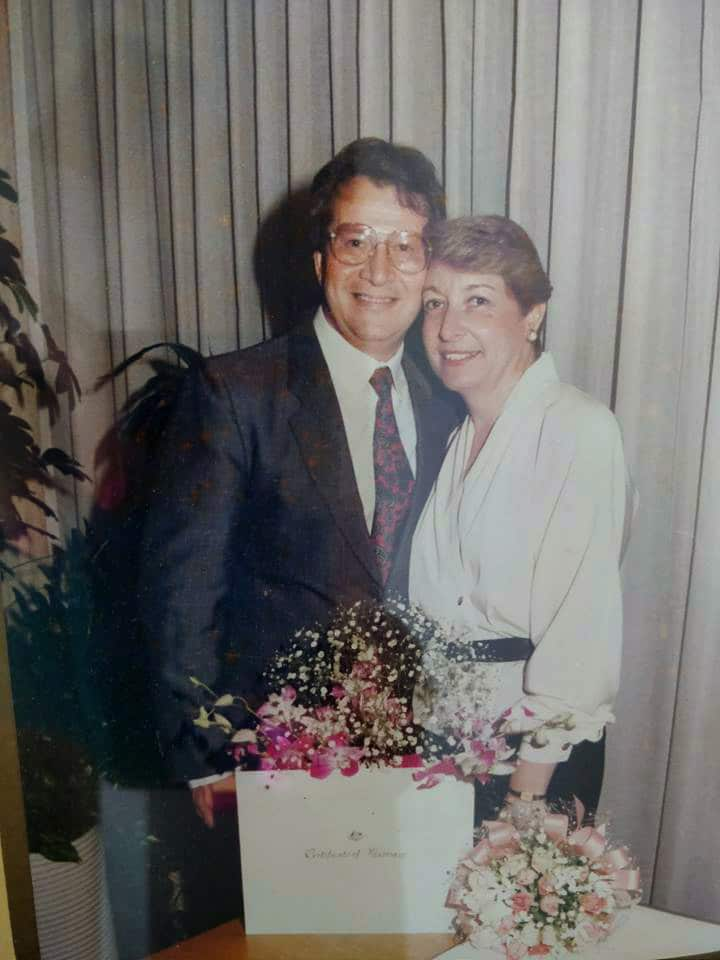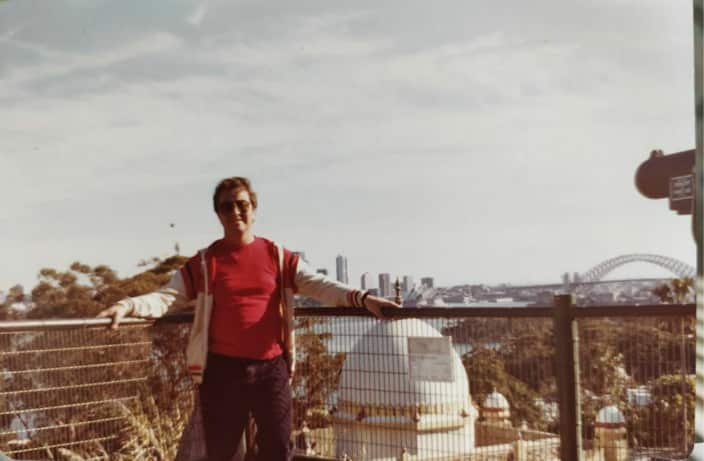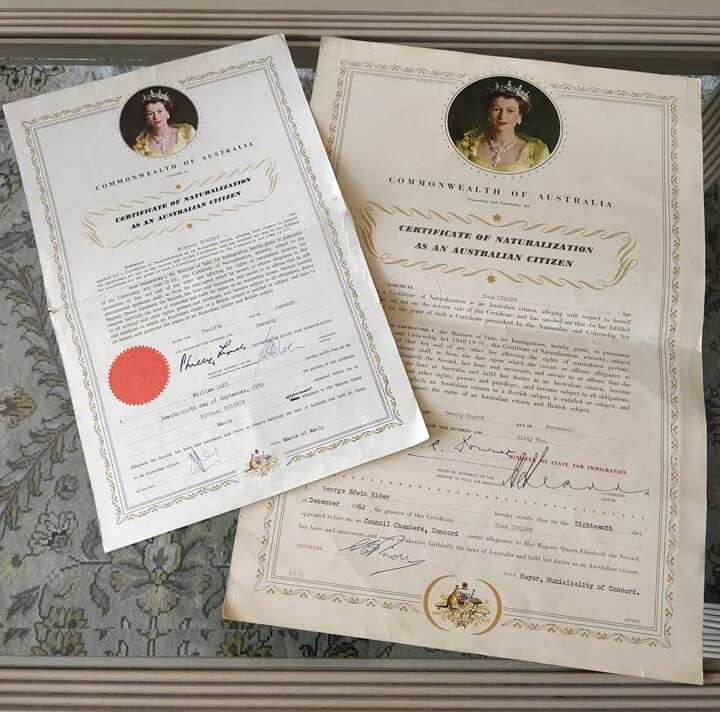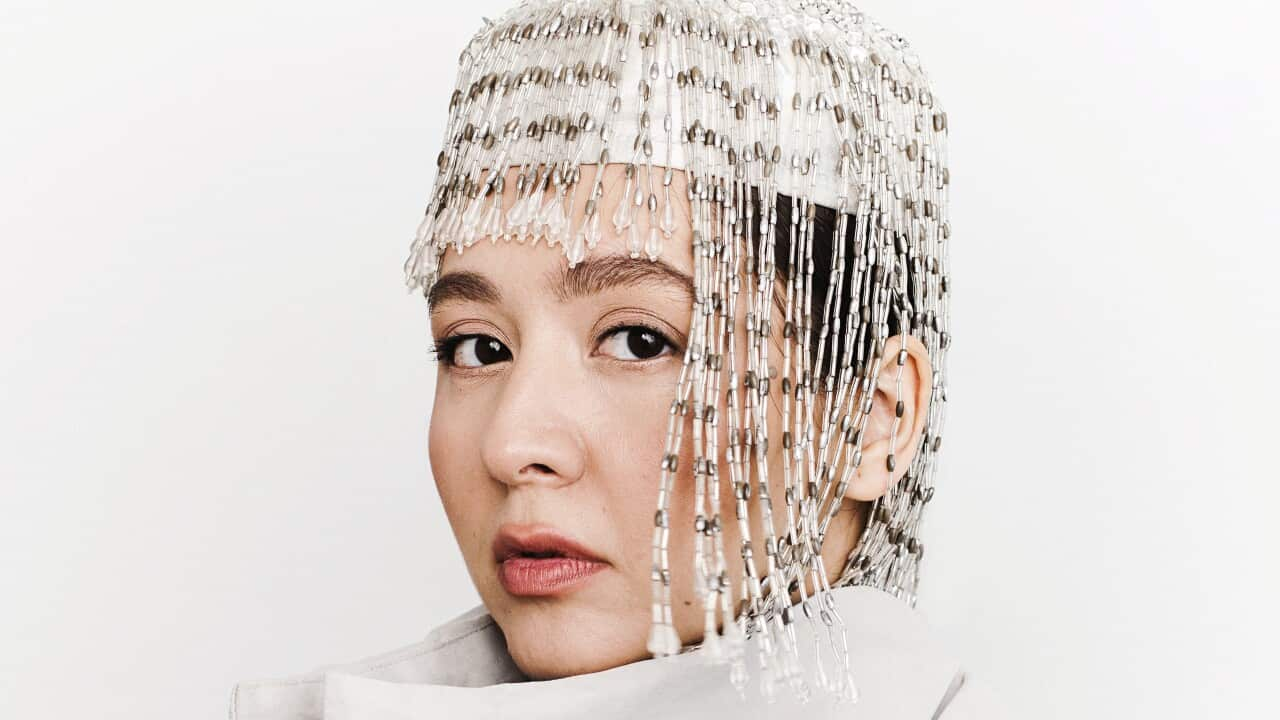To begin in Harbin, a Russian city in China
Tatiana and Michael were not born in Russia. They were born in China's 'Russian city', Harbin.
The northern Chinese city of Harbin was founded in 1898 during the a major railway project, and quickly became home to thousands of railway workers who came from the Russian Empire. That Russian population grew again after the 1917 revolution, when those disagreeing with the Soviet regime also arrived.
As the years passed Russians began to leave Harbin. Some went back to USSR and others left for other countries such as the USA, Brazil and Australia, and after World War II, many more Russians left China and the USSR behind for those countries, Michael and Tatiana were a part of this wave of immigration.
“We came here as refugees,” Mr Dubinin says of his arrival in Australia. “After the war, Australia was accepting displaced people. In fact, we did not have any citizenship, we had USSR passports but they were counted as an inferior residence permit, and in USSR these documents were usually just ripped apart. We were still kids when we came to Australia, Tatiana was 10 and I was 14.”

‘I will die before I go back to Russia’
Tatiana and Michael still remember the hardships their parents went through. To obtain an Australian visa, one had to find a sponsor, a friend or a relative that would offer you a place to live. But the hardest part was getting permission to leave China.
“It was impossible to leave China without receiving permission from the special department,” Mrs Dubinin explains. Under pressure from the Soviet Union, the Chinese were trying to make us go back to USSR.
“It took us four years to get that permission. My father had to wait for many hours in winter just to learn that they [the responsible department] weren’t going to be opening today. They wanted people to give up. But my father had said, 'I will die before I go back to Russia, nor will I ever take my daughter there'."
Lots of work, but not much housing
Tatiana remembers it was easy for newcomers to find a job in Australia.
“In that time it was very easy," she says. "Australians always said, 'Let those bloody wogs do all the dirty work'.”
“However, there was a major problem with housing,” Mr Dubinin adds, “There were only typical Australian houses with the red rooftops and renting a house in Sydney was nearly impossible. We could rent rooms from other immigrants that came earlier.”

‘Your sandwiches stink!’
Tatiana and Michael remember the lack of special English classes for immigrants, and the miscommunications that could lead to.
“They put me in year five,” Tatiana says, “My teacher asked me, ‘What’s your name?’, and I would ask another Russian girl, 'Natasha, what are they asking me?'. Basically, I didn’t know anything.”
Tatiana also recalls being taunted by other children for her food, a hallmark of immigrant life in 1950s Australia.
“I was afraid of having our traditional food at school and for lunch I only brought sandwiches with peanut butter or jam. One time my mum put a garlic sausage in my sandwich and kids laughed at me, ‘Your sandwiches stink!’. Australians only ate ‘devon’ at that time.”
As Michael recalls, life was tough in the boy’s school too.
“Back in China, we had big fights with Chinese kids on the way from school every day... In Australia, if some kid said something I didn’t like, I didn’t think much and would fight them. Maybe the kids were simply asking me where I was from. I don’t know. If I didn’t like the tone, I would fight. As a matter of fact, a lot of kids did the same.”
Not everyone wanted Australian citizenship
“Every one or two years we got a reminder that we were eligible to get citizenship," Michael says, "and we ignored all of them... We eventually decided to accept the invitation, though. We were invited to the citizenship ceremony on the Australia Day and took an oath. There was a choice between an oath and a promise. People that weren’t very religious gave a promise.”
But for Tatiana’s parents the ceremony became a very significant event as her father dreamed to call this country home.
“There was a hall filled with people," Tatiana recounts of her ceremony."The anthem 'God Save the Queen' was playing. I remember who presented us with the citizenship: It was William McMahon, a man that later became the Prime Minister. It was very happy day for our family.”
Interestingly, the certificate of citizenship obtained by Tatiana in 1962 is a lot larger than the one presented to Michael in 1970.

A nightmare return to Russia
Tatiana says that after she finished school she took great interest in her homeland. Even though she and her parents were born in China, they have always thought of Russia as their home country.
“I did Russian for my final exam at school and therefore I read a lot of Russian literature and any Soviet book that we could obtain... I thought why do people have a homeland and I don’t? And so I went to Russia as tourist in the late '70s.”
Tatiana says she was like a package in the USSR. She was picked up in a car from the airport and delivered to her hotel with the words, “I brought the Australian”, and there were strange calls made to every hotel she stayed in.
“After three days I knew that I was constantly followed," she says. "Wherever I went I saw a person in a grey suit and with a newspaper under an armpit. I tried to dress as simple as possible to remain inconspicuous, a simple skirt and a simple shirt. And even then, on every floor, in every hotel, the key-keeper ladies would go through all my things, whenever I left my room.”
She was also interrogated, she says, with her interrogator stating that it wasn’t her first visit to Russia. It took all her willpower not to show how much that experience shook her.
“My parents were terrified that I would tell them, ‘I’m packing my bags and moving to Russia,’," says Tatiana. "However, when I got back home, I hugged my dad and mum and broke down, thanking them for bringing me to Australia. For three months after my trip I woke up in terror that I was still in Russia, because I simply would not have survived there.”




